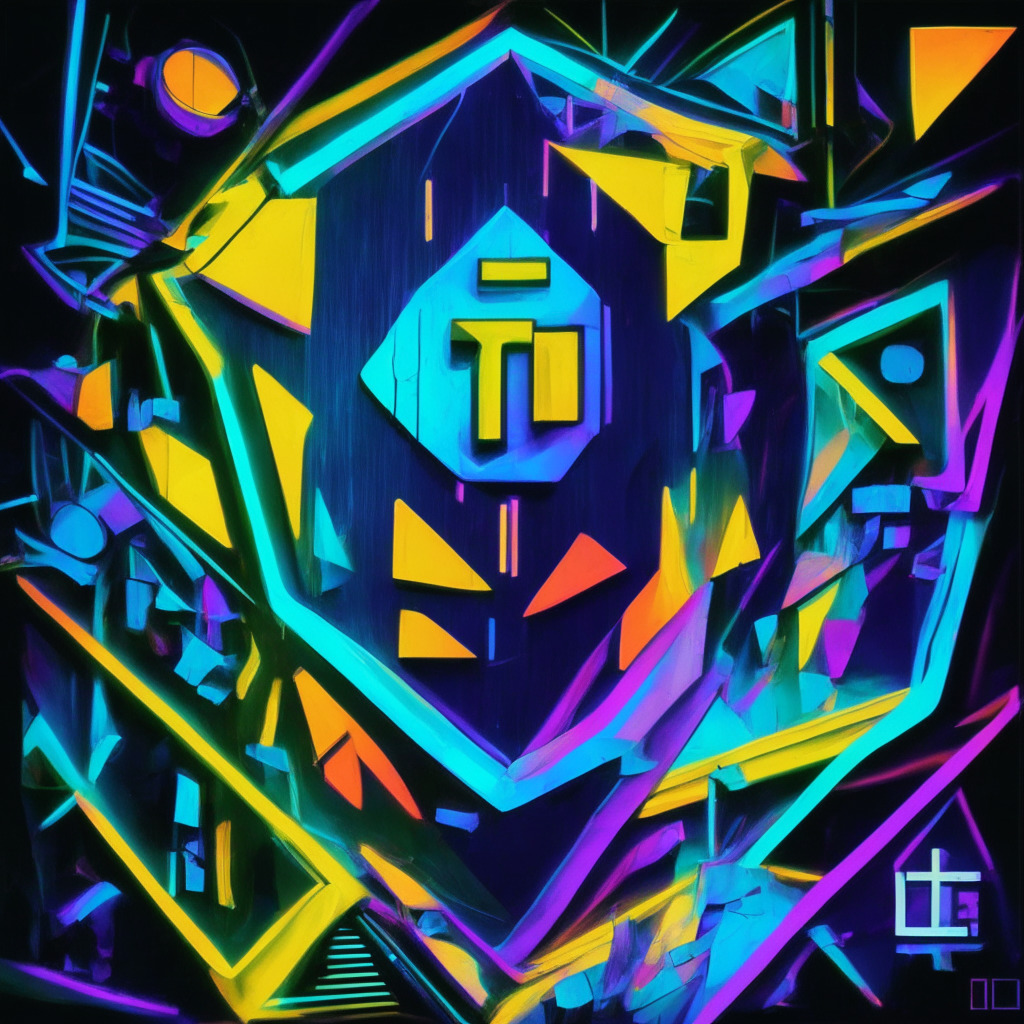“Proto-danksharding, or EIP-4844, is a proposed Ethereum security feature set to significantly reduce fees for rollups. By introducing data blocks that are temporally attached and later erased, transaction costs are minimally affected. Despite promising advancements, rollup costs are largely dictated by data availability, challenging the thorough implementation of this crucial scaling solution in the Ethereum ecosystem.”
Category: Technology
Hong Kong’s Digital Yuan Testing Phase II: A Leap to Future or a Threat to Privacy?
“Hong Kong is advancing on the second phase of technical testing for China’s digital yuan, focusing on the digital wallet’s top-up functionality via the Faster Payment System. Concomitantly, the city grapples with challenges balancing financial innovation and consumer protection in the fast-paced digital currency landscape.”
East Asia’s Blockchain Paradox: Remarkable Tech Advancements Amid Regulatory Challenges & Scams
“Tencent’s new large language model, Hunyuan, features over 2 trillion training parameters, promising more efficient data processing. However, questions about data-handling accuracy persist. Meanwhile, South Korea witnesses an $83 million crypto scam, underscoring the need for greater transparency and accountability in the cryptosphere.”
The Mounting Potential of Proto-Danksharding: A Game Changer for Ethereum’s Rollup Costs
The Ethereum ecosystem could see a significant change in rollup costs, a key aspect of its scaling solution, with the potential implementation of proto-danksharding. Nicolas Liochon, head of Consensys’ zkEVM Linea, anticipates this could decrease rollup costs tenfold. The technology, yet to be launched, could unleash untapped rollup potential.
Exploring OpenSea: Transforming Digital Asset Ownership Through NFTs and Facing Challenges
OpenSea, a decentralized marketplace for nonfungible tokens (NFTs), is revolutionizing the digital ownership economy. However, its reliance on cryptocurrency and possible exposure to fraudulent NFT listings are potential drawbacks. Despite these limitations, OpenSea continues to transform our interaction with digital assets.
Nigeria’s Naira Scarcity: A Case for DeFi Over CBDCs and the Road to Cashlessness
At a recent gathering of local blockchain experts, the discussion revealed the potential for blockchain technology to have alleviated Nigeria’s naira shortage. Initiatives such as minting new naira notes and driving Central Bank Digital Currency adoption, the experts argued, could have been executed more effectively through a decentralized finance (DeFi) system. This would empower citizens and better prepare them for future transitions. While blockchain promises transparency, concerns about scalability and environmental impact remain.
ZAN’s Blockchain Ambitions: A New Era of Application and Regulation or Just Another Failed IPO Attempt?
Ant Group, the owner of Alipay, has launched ZAN, a sub-brand providing blockchain application and services. ZAN aims to assist Web3 developers, offering services like management of real-world assets, regulatory compliance solutions, and advanced features including eKYC, AML and KYT systems. Despite potential regulatory challenges, Ant Group’s innovative venture could significantly diversify its prospects in the rapidly evolving blockchain technology market.
Harnessing Blockchain’s Potential in Africa: The Intricate Tug-of-War with Poverty
“Blockchain technology’s mainstream adoption in Africa hinges on poverty eradication. Stakeholders believe a society devoid of poverty forms a stronger environment for blockchain incorporation. Despite economic struggles, Nigeria’s significant interest in cryptocurrencies and potential for blockchain integration shows promise. Nevertheless, this progress depends on achieving economic stability.”
Bridging the Gap: Synthetix Innovates to Reduce Friction in DeFi Adoption
Synthetix plans to launch Synthetix V3 protocol alongside its decentralized exchange front-end, Infinex, to reduce friction in the DeFi sector. The new protocol aims to provide a seamless transition from conventional exchanges to decentralized ones, and help DeFi become a potent rival to traditional financial systems. However, it must address challenges like regulatory compliance and system security.
Partnering Power: How Brinc and Cointelegraph’s Team Up Could Propel Web3 Startups Forward
“Brinc and Cointelegraph Accelerator are joining forces to support Web3 startups. Their collaboration will combine resources to help startups navigate the challenges of scalability and regulation amidst dwindling VC investment. The accelerators aim to leverage their complementary capabilities, mentoring, network, and marketing prowess, offering a robust support structure to foster the growth of Web3 startups.”
JPMorgan’s Move into Blockchain-Based Cross-Border Transactions: A Game-Changer or Threat?
JPMorgan is reportedly developing a blockchain-based system for cross-border transactions, alongside a new deposit token aimed at speeding up settlements for corporate clients. These efforts, pending regulatory approval, could encourage other banks to consider blockchain solutions and deposit tokens, amidst challenges from other digital tokens and stablecoin issuers. The future of crypto isn’t just about innovation, but also about maintaining a balance between progress and security.
Redefining Value: The Digital Frontier of Tokenized Real-World Assets
“Tokenized real-world assets are becoming mainstream with firms like Coinbase, Circle, and Aave forming the Tokenized Asset Coalition to promote the transition to decentralized finance. Predictions estimate tokenized assets reaching $16 trillion by 2030. Meanwhile, key financial entities globally are considering or offering crypto-related services, signifying a pivotal switch in financial systems.”
New Wave of AI-driven Crypto Projects: Revolutionary Benefits and Possible Pitfalls
Blockchain and Artificial Intelligence (AI) are promising innovations with the potential to reshape our future. AI in particular is a game-changer in the crypto world, enabling informed investing through machine learning and predictive analytics. Five emerging AI crypto coin projects – Launchpad XYZ, Fetch.ai, PAAL AI, Unibot, and yPredict – are revolutionizing everything from decentralized trading platforms to predictive analytics tools.
Tencent’s AI Leap Amidst US-China Tensions: Breaking Down the Hunyuan System
“Tencent has introduced its ‘Hunyuan’ AI system, a multimodal large language model similar to OpenAI’s ChatGPT. The system supports functions like image creation, text recognition, and customer service, and can contribute to sectors such as finance, social media, and e-commerce.”
Harnessing Blockchain to Tame the AI Beast: Innovation or Involution?
“The introduction of blockchain with AI could enhance transparency, accountability, and audibility, reducing potential misuses of AI. Blockchain can secure data integrity when training AI models, enabling stakeholders to verify the decision-making process. However, real protection against intentional dangers of AI lies in decentralized, blockchain-based, social media platforms.”
Revolutionizing Business: Blockchain, AI and the Imminent Threat to Conventional Industries
“AI and blockchain technologies are set to restructure established sectors and create new markets, driving economic growth through task automation and modernising payment systems. However, they also pose risks, and their benefits may take another decade to materialise. Also, the migration of NFTs indicates belief in Bitcoin’s promise, though Ethereum still dominates the NFT market.”
Shifting Sands: OnChainMonkey’s Bold Migration of NFTs from Ethereum to Bitcoin – A Glimpse into Future Trends?
“OnChainMonkey, led by Metagood CEO Danny Yang, plans to migrate their 10,000 NFTs from Ethereum to Bitcoin citing Bitcoin’s superior security. Estimated at over $1 million, the migration process highlights the significant wealth within the art/collectibles sector. Despite Ethereum’s reigning dominance in NFT transactions, this bold switch suggests possible future shifts in the crypto space.”
The Fine Line Between Crypto User Authentication and Privacy Intrusion
“The crypto industry is prioritizing proof-of-humanity solutions to distinguish genuine users from bots. While techniques such as Zero Knowledge Proofs and blockchain-based Proof of Burn ensure credible, anonymous verification, they also need to incorporate ‘privacy-by-design’ principles. The focus is on user control, data privacy, and safeguarding against fake accounts and automated bots without infringing user’s privacy.”
Navigating Polkadot 2.0: A Revolutionary Shift for Developer Attraction & DOT Token Economy
Polkadot’s innovative roadmap, Polkadot 2.0, aims to reimagine resource allocation to foster efficiency and inclusivity. It introduces ‘elastic cores’ for flexible computational capabilities and ensures coretime allocation aligns with developers’ evolving needs. Improved availability and budget-friendliness could potentially increase DOT tokens’ market value, while fees from coretime sales support Polkadot’s Treasury.
Riding the Blockchain Wave: OpenCover and Nexus Mutual Forge New Paths in Crypto Insurance
OpenCover, a decentralized insurance provider, has made its debut on Ethereum-fueled blockchain, Base, further expanding its financial capacity with Coinbase. The launch is part of a collaboration with Nexus Mutual, aiming to offer investors insurance-like coverage for the crypto industry. OpenCover intends to guard against protocol shortfalls and provides protective shield for traditional entities and forward-looking platforms.
Breaking Boundaries: AI Generated Art and Royalty Rights in the Crypto World
“AI art pioneer, Pindar Van Arman, has generated recognition in the cryptosphere with his AI-created NFTs. Van Arman promotes the notion that, much like the recording or writing world, crypto artists should hold royalty rights, sparking controversy among collectors. His AI art, challenging traditional definitions of creativity, incites both scepticism and appreciation, whilst highlighting the potential applications of AI beyond the creative arts.”
Custodial vs Non-Custodial Crypto Wallets: A Balancing Act of Convenience and Security
“The article debates the merits of custodial versus non-custodial wallets in cryptocurrency. Custodial wallets, managed by third parties, offer simplicity but present security risks. Non-custodial wallets provide total control, upholding cryptocurrency’s core ethos of decentralization but with less convenience. The choice involves balancing security, control, and services.”
Fostering Adoption of Traditional Assets on Blockchain: The Role of the Tokenized Asset Coalition
Crypto industry leaders, including Coinbase and Circle, form the Tokenized Asset Coalition to spur adoption of traditional financial assets on blockchain. The coalition’s aim is to bring the “next trillion dollars of assets” to blockchain technology through education and advocacy, fostering the adoption of public blockchains, asset tokenization, and institutionalized decentralized finance (DeFi). This initiative predicts a more efficient, cost-effective, and transparent system with the adoption of tokenized assets.
Revolutionizing Financial Markets with AI and Blockchain: A Double-Edged Sword?
“Blockchain and AI could revolutionize the financial markets, potentially lowering costs and modernizing payment systems. However, they demand upfront investment and may initially inflate IT expenses. Risks like tax evasion and money laundering must also be kept in check. Despite hurdles, the full potential of these technologies is still unfolding.”
Balancing Act: Ethereum’s Quest for Privacy, Regulation, and Decentralization with Privacy Pools
Ethereum’s co-founder, Vitalik Buterin, leads a privacy protocol initiative, ‘Privacy Pools,’ employing zero-knowledge proofs to verify user funds legitimacy, preserving transactional privacy. The protocol aims to create a separation that filters out funds related to criminal activities, harmoniously balancing financial privacy and regulation.
Blockchain Secrets: Unveiling Japan’s Mass-scale Web3 Adoption & A Lesson from Palau’s Abandoned Stablecoin Experiment
“Loyalty Marketing, an Avalanche partner, aims to introduce Web3 to 90% of the Japanese population via loyalty rewards program integration with blockchain. The plan, discussed at the Korea Blockchain Week 2023, also includes minting up to 10 million NFTs.”
AI-Generated Song Vies for Grammy: Innovation or Threat to Human Creativity?
An AI-generated song featuring a track of rapper, Drake, is vying for a Grammy nomination. The song, presented by a producer known as “Ghostwriter”, raises questions about the authenticity of AI-generated music and sparks a conversation about the challenges and opportunities of integrating AI in the music industry.
Google’s AI Policy Update: A Step Towards Transparency or an Ethical Minefield?
Google’s recent policy update mandates disclosure of AI-generated content in political ads, aiming to increase transparency and ethics in AI. The policy will apply to image, audio, and video content from mid-November 2023 onwards. However, this doesn’t solve all AI ethics issues, especially given the rise of Deepfakes.
Examining Casa’s Newest Ethereum Feature: Privacy Boost vs Public Transaction Visibility
Casa’s new transaction relay feature aims to provide more privacy for its Ethereum users. While this innovation is exciting, it can make Ethereum addresses linked to Casa publicly viewable, raising privacy concerns. However, the use of an ETH Pay Wallet can serve as a relay to transact from a vault, mitigating this issue.
Scaling the Ethereum Blockchain: The Promising Rise and Potential Pitfalls of Layer 2 Solutions
To combat increasing transaction times and fees, Ethereum is utilizing layer 2 scaling solutions, resulting in faster transaction speeds, lower costs, and maintaining security. These networks enhance throughput and transaction rates, drawing significant attention. However, layer 2 chains also face criticism, largely from crypto users maximizing profitability through airdrop farming.
Blockchain Literacy in Nigeria: A Struggle Amidst Linguistic Diversity and Regulatory Obstacles
Despite the growing blockchain and crypto awareness in Nigeria, key challenges remain around public education. Linguistic diversity poses difficulties in a country where over 500 languages are spoken. A disconnection between local banks and crypto-exchange firms further complicates the landscape. Nevertheless, Nigeria is proactive in overcoming these hurdles by implementing language-friendly education strategies about blockchain technology.
Unleashing the Trillion-Dollar Future: Blockchain, Tokenization and Global Finance
“Mirae Asset Securities partners with Polygon Labs to promote Web3 tech adoption via tokenizing finance. The partnership seeks to overcome challenges such as steep learning curves and global regulatory disparities. The Mirae-led initiatives aim to foster interoperability between financial systems and propose a forward-thinking approach to digital finance.”































